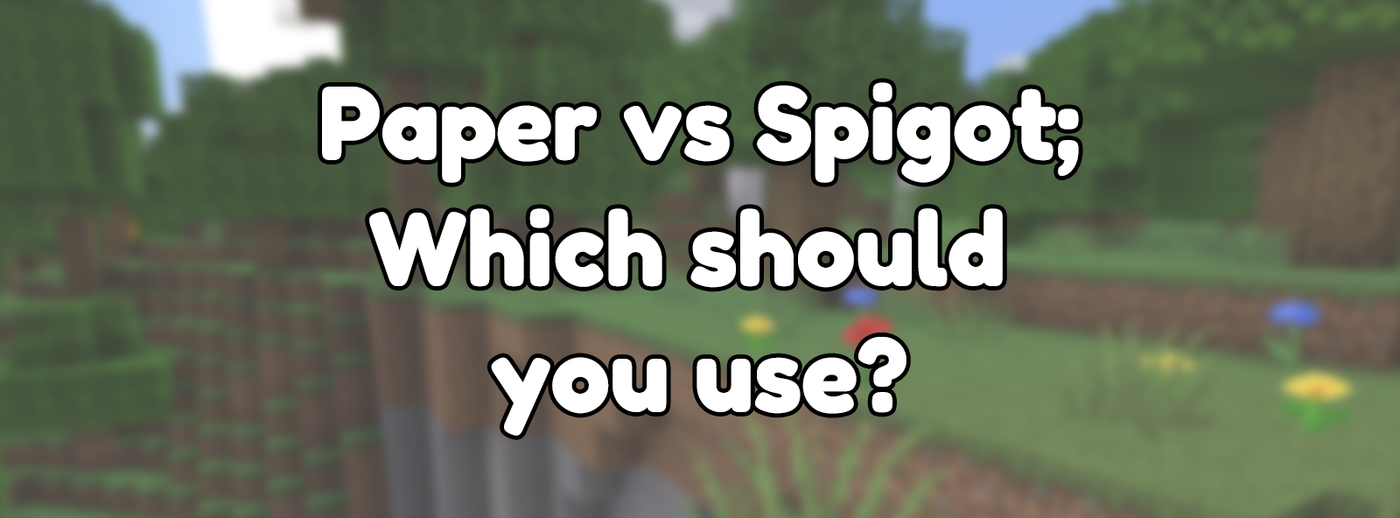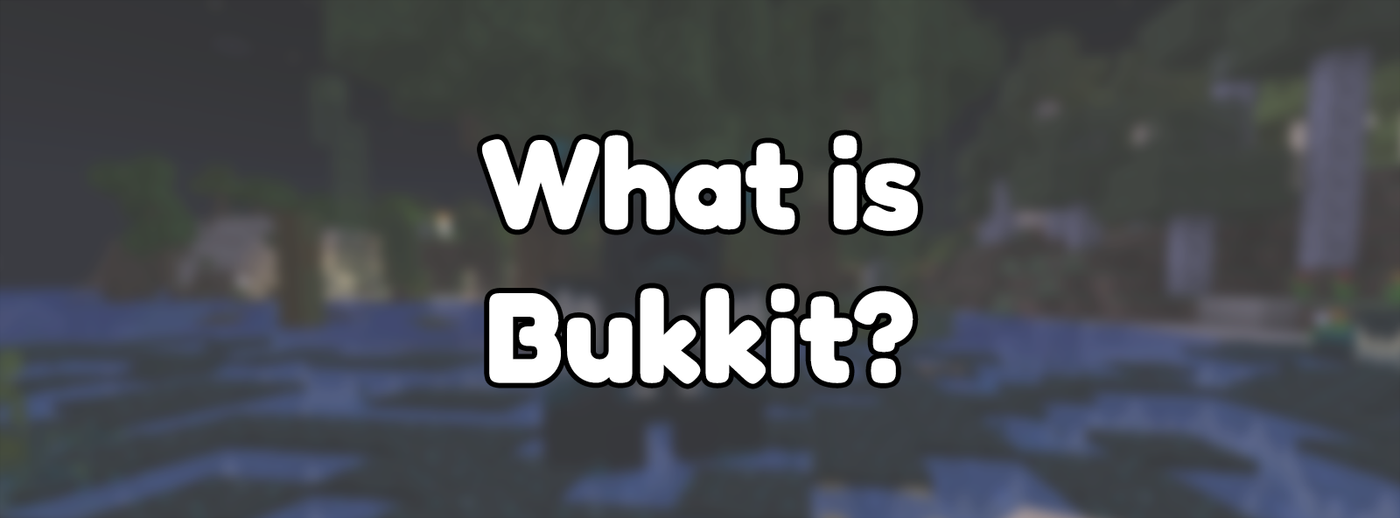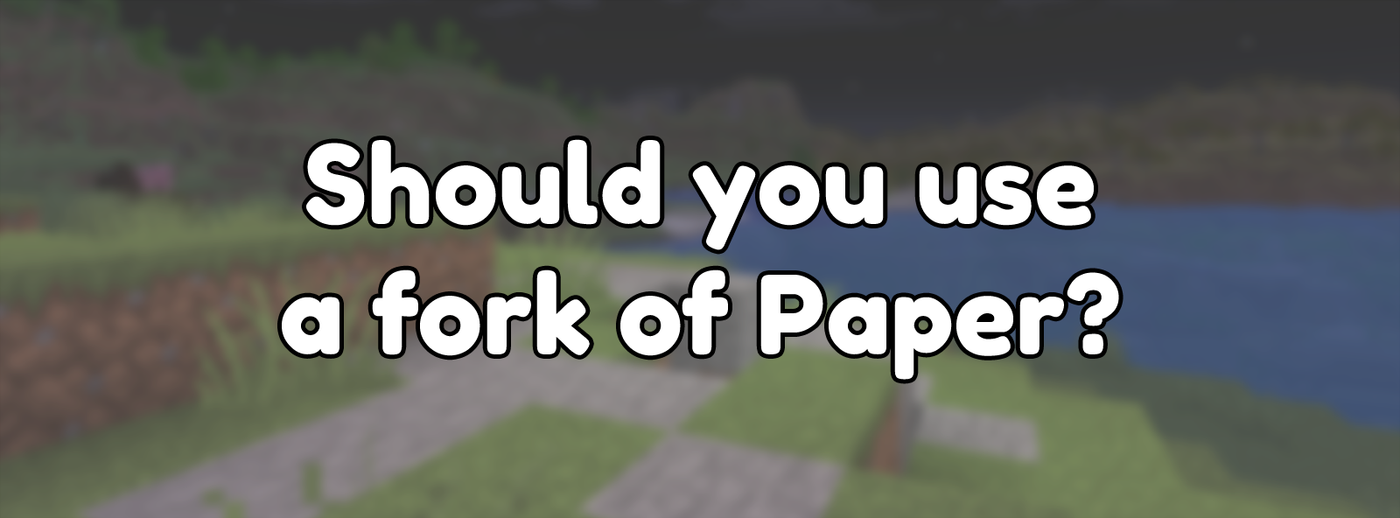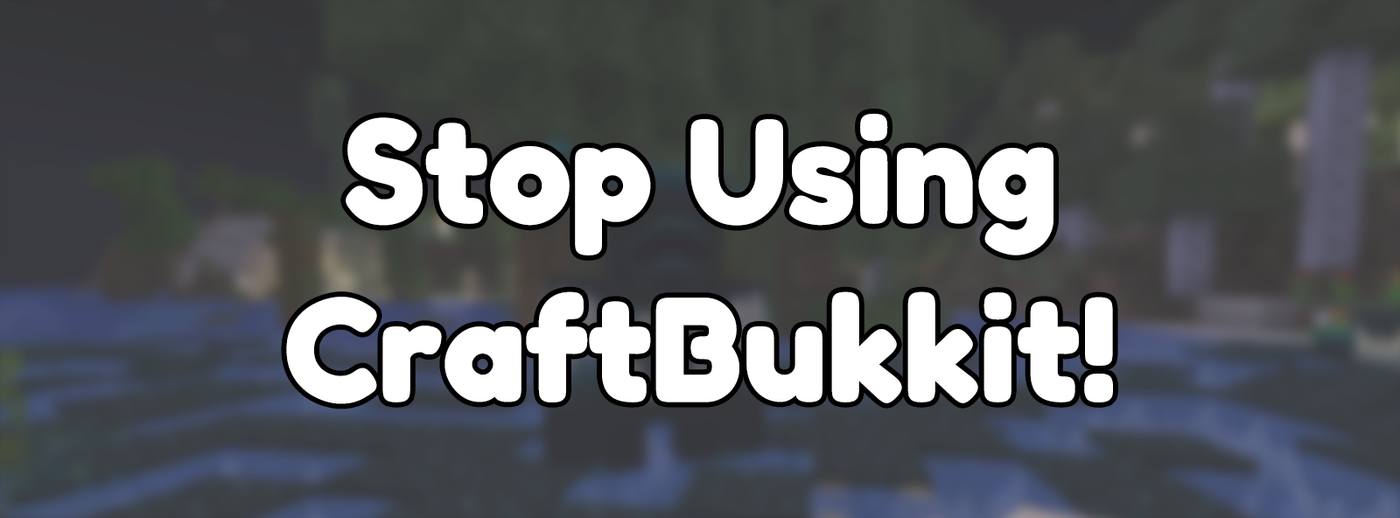
Paper vs Spigot, which should you use?
Updated on Dec 14, 2024 by Maddy Miller
Originally posted on Aug 26, 2020
In Minecraft with tags Bukkit, Explainer, Minecraft Servers
Part 6 in a series on Running A Minecraft Server
959 words, 4 minutes to read
Due to the popularity of my previous article on Fabric vs Forge and NeoForge, I've decided to write up a guide on whether you should use Paper or Spigot. Paper and Spigot are very similar, both being server software that derived from the now-defunct Bukkit project. So what's the difference? Which should you choose?
A note about CraftBukkit
Firstly, it's worth mentioning why you should not use CraftBukkit. CraftBukkit was the official Bukkit server for a fair while, but it no longer receives any support. The Spigot team maintain CraftBukkit as a base for Spigot and neither endorse nor recommend using it. As no one supports this platform anymore, using it is unwise and could lead to problems without assistance. For more information, this article explores CraftBukkit further.
Benefits of Paper
Paper is a project that’s marginally newer than Spigot, with a much larger and more open community.
Better Performance
The main benefit of using Paper is the significantly improved performance compared to Spigot. Paper includes a large number of changes that speed up different aspects of the game, some of which are so impactful they’ve been ported to other mod platforms. It's impossible to give exact performance statistics due to how different every Minecraft server is. However, it's common for Paper to increase the number of players your server can support without slowing down by over 50%.
Paper also includes many options that you can enable to further improve performance at the expense of impacting gameplay behaviour. Such as optimising the way the game chooses spawn locations for mobs to allow fewer overall mobs without players noticing.
Paper-only Plugins
While both are Bukkit-derived APIs, Paper allows plugins to do significantly more than they can with the Spigot API. While some of these APIs are aimed at being more performant versions of Spigot ones, there is a significant amount that allow interacting with the game in deeper or more precise ways. Due to this, there are many plugins that either outright require Paper, or support both Spigot and Paper with extra improvements on top for servers that are running Paper. These usually take the form of either much better performance, or improvements to the plugins functionality that wouldn’t be possible on Spigot. As supporting Spigot can significantly hinder functionality of the plugin however, it’s becoming more and more common to drop support for it. For example, CraftBook 5 is a rewrite of CraftBook using Paper-specific features, allowing for significantly better performance, better reliability, and more features.
Larger Community and Community Focused
More servers use Paper than Spigot, meaning it has a broader community. Some estimates of user share show that Paper has more than ten times the users than Spigot. More people using the software means bugs are found and fixed more quickly, and more people want to contribute to the project. Contribution is also much easier, given everything is publicly available on GitHub. Spigot requires creating an account on their website and signing an agreement to submit changes. A wider community also means that more people can help when something goes wrong.
Paper is also more community-focused, regularly conversing with other sections of the Minecraft community such as Sponge and Fabric to share discoveries and improvements. The development process is also public, so anyone can help out if they can do so, including the update process for new Minecraft versions.
Spark vs Timings
Paper includes the Spark software to identify performance issues, which is much better than the Timings software that is within Spigot. It allows accurately identifying the source of slowdowns, rather than Timings which often has false positives and incorrectly blames various plugins. Both do require some skill to interpret, but with Spark you’re starting from a baseline of significantly more accurate information.
While it is possible to install Spark on Spigot, it’s built into Paper already so you don’t need to do anything extra.
Patches Bugs
While potentially a downside for some, Paper patches many bugs that can heavily impact servers. Paper aims to fix every known item or block duplication bug, which lets servers ensure that their survival gameplay is fair and free from cheaters. Generally, all changes that impact gameplay other than patches for dupe bugs will be optional.
Benefits of Spigot
Spigot is a marginally older project out of the two competing Bukkit derivatives, and in general tries to keep closer to the original design of the Bukkit project.
Backwards Compatibility
In late 2024, Paper hard-forked from Spigot. This means that Paper is no longer built on top of Spigot and will not be compatible with Spigot plugins that make use of new Spigot features going forward. While this does not mean that all existing Bukkit and Spigot plugins will not work on Paper, it does mean that as time goes on and Paper makes more large-scale changes to their API, older plugins might fail to load.
Spigot has also put significant work into ensuring legacy plugin compatibility where they can, which also improves the backwards compatibility further. While it’s always a better idea to use up to date and actively maintained plugins, Spigot can be a good choice if you’re stuck using old ones.
Spigot-only Plugins
While there are fewer Spigot-only plugins due to its relatively smaller community than Paper, these do still exist. If you’re in a situation where you can’t live without a Spigot-only plugin, and no alternatives exist, Spigot might be the right option for you.
So, which should I use?
Overall, Paper is a better option. It has more users, more plugins and performs a lot better. While there are still a few valid reasons to use Spigot, the best choice for the average Minecraft server is to use Paper.
If you can't decide which Minecraft version to use, check out my guide on that here.
Continue reading the next part of the series: Should you use a fork of Paper?



